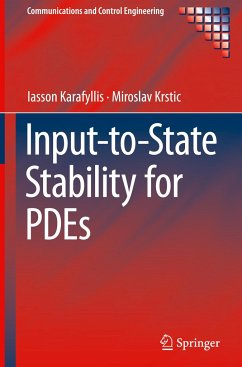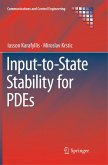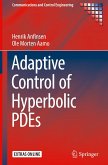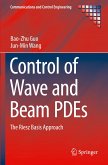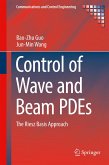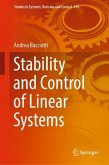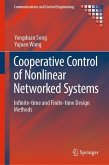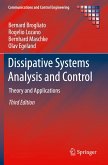This book lays the foundation for the study of input-to-state stability (ISS) of partial differential equations (PDEs) predominantly of two classes-parabolic and hyperbolic. This foundation consists of new PDE-specific tools.
In addition to developing ISS theorems, equipped with gain estimates with respect to external disturbances, the authors develop small-gain stability theorems for systems involving PDEs. A variety of system combinations are considered:
PDEs (of either class) with static maps;
PDEs (again, of either class) with ODEs;
PDEs of the same class (parabolic with parabolic and hyperbolic with hyperbolic); and
feedback loops of PDEs of different classes (parabolic with hyperbolic).
In addition to stability results (including ISS), the text develops existence and uniqueness theory for all systems that are considered. Many of these results answer for the first time the existence and uniqueness problems for many problems that have dominated the PDE control literature of the last two decades, including-for PDEs that include non-local terms-backstepping control designs which result in non-local boundary conditions.
Input-to-State Stability for PDEs will interest applied mathematicians and control specialists researching PDEs either as graduate students or full-time academics. It also contains a large number of applications that are at the core of many scientific disciplines and so will be of importance for researchers in physics, engineering, biology, social systems and others.
In addition to developing ISS theorems, equipped with gain estimates with respect to external disturbances, the authors develop small-gain stability theorems for systems involving PDEs. A variety of system combinations are considered:
PDEs (of either class) with static maps;
PDEs (again, of either class) with ODEs;
PDEs of the same class (parabolic with parabolic and hyperbolic with hyperbolic); and
feedback loops of PDEs of different classes (parabolic with hyperbolic).
In addition to stability results (including ISS), the text develops existence and uniqueness theory for all systems that are considered. Many of these results answer for the first time the existence and uniqueness problems for many problems that have dominated the PDE control literature of the last two decades, including-for PDEs that include non-local terms-backstepping control designs which result in non-local boundary conditions.
Input-to-State Stability for PDEs will interest applied mathematicians and control specialists researching PDEs either as graduate students or full-time academics. It also contains a large number of applications that are at the core of many scientific disciplines and so will be of importance for researchers in physics, engineering, biology, social systems and others.
"The text is very readable due to ubiquitous remarks, examples, explanations and references before and after the rigorous mathematical derivations. In addition to new results future research topics are also presented. The book is recommended for everybody interested in control systems involving PDEs and their applications." (Andras Balogh, Mathematical Reviews, December, 2019)
"This is a beautiful book, highly recommended to researchers and, as a textbook, to post-graduates. The graphical conditions are excellent." (Vladimir Rasvan, zbMath 1416.93004, 2019)
"This is a beautiful book, highly recommended to researchers and, as a textbook, to post-graduates. The graphical conditions are excellent." (Vladimir Rasvan, zbMath 1416.93004, 2019)

